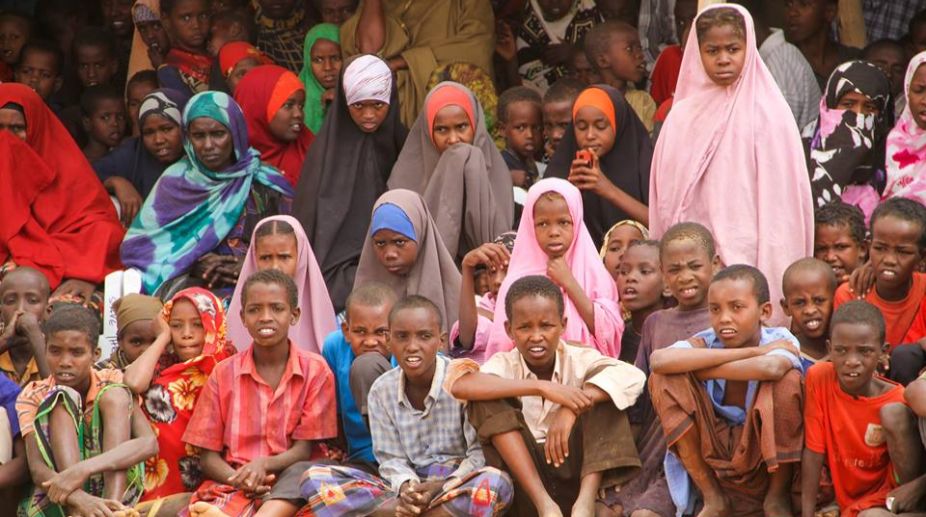As Bangladesh tackles the flood of Rohingya Muslims streaming into the country from Myanmar, the head of the country’s National Human Rights Commission (NHRC) says the situation is alarming in the camps set up for the refugees and further aggravation of the situation may lead to a “humanitarian catastrophe”.
Bangladesh has seen an estimated 400,000 Rohingyas fleeing into the country in the past three-and-a-half weeks, creating a humanitarian crisis, with the refugees facing acute shortages of all kinds of humanitarian support, shelter, food, sanitation and clean water, said Kazi Reazul Haque, chairman of Bangladesh NHRC.
Advertisement
Representing Bangladesh NHRC at an international peoples tribunal here in Malaysia on alleged atrocities and state crimes against the Rohingya, Kachins and other ethnic minority groups in Myanmar, Haque called for immediate and unhindered access to humanitarian aid from the international community.
He said Bangladesh has allowed the Rohingya people to seek temporary shelter and provided them humanitarian support, adding that the influx of refugees is faster than the government is able to set up camps.
A total of 2,000 acres of land has been allocated in Cox’s Bazar in Bangladesh for the new camps, but the refugees are arriving in droves, and settling down anywhere they can find space, Haque said.
“The Rohingya refugees have started occupying all available spaces, including public spaces such as railway stations, public grounds and markets. Persons who were not able to find space are simply occupying roadsides. During our visit, we witnessed rows and rows of persons helplessly standing by the roadside,” the chairman of NHRC said.
Haque said Bangladesh has already been hosting 32,000 registered Rohingya refugees, with most living in two official camps in Cox’s Bazar. But the new arrivals since August 25 has taken the number of Rohingyas at present to around seven lakh.
The influx has got people in Ukhia and Teknaf in Bangladesh worried about diseases that have stated spreading, said the NHRC chairman who voiced concern about the scarcity of medicines and of refugees carrying diseases, which could spread among local residents.
“Water-borne and skin diseases are widely spreading among the Rohingya refugees and the medicines are running out. The health crisis is beyond the capacity of the existing medical complexes in the areas. It is also reported that the refugees are carrying polio, tuberculosis and HIV/AIDS among other diseases. This is of great concern because polio has been totally eradicated in Bangladesh and tuberculosis is very much under control,” Haque said.
In the absence of sanitation facilities, open defection is being practiced by the refugees, he said, adding that the surrounding areas are posing a risk of diarrhoea and dysentery to the children in the camps.
The NHRC strongly believes that human rights are universal and thus any violation of human rights could not be taken in isolation, he said, adding that it is vital to look at how this scenario has impacted on the local population.
“Unless a sustainable solution is found there is a possibility that the entire Rohingya community from Myanmar may flee to Bangladesh to escape this ongoing grave violation of human rights,” Haque said, seeking help of the international community to come forward to resolve the crisis facing Rohingya Muslims in Rakhine state of Myanmar.
The NHRC chairman was speaking before a Rome-based Permanent People’s Tribunal (PPT), an international public opinion tribunal that operates independent of state authority.
The purpose of the tribunal is to “expose” the alleged inhuman treatment to Rohingyas and push to stop the crimes. It has been hearing victims from the Myanmar ethnic communities, recording their testimonies on their experiences in a court-like setting.
The process is similar to a hearing, with the Myanmar ethnic groups testifying before a seven-jury member in Kuala Lumpur from September 18-22 at Universiti Malaya’s Faculty of Law.
On September 22, the tribunal will make a conclusion based on oral testimonies on the atrocities and give findings to international bodies, especially the United Nations, for further action to be taken against Myanmar to end the violence.
The findings are not legally binding and cannot be enforced by law.
The Rohingya, a stateless mostly Muslim minority in Buddhist-majority Rakhine, have long experienced persecution in Myanmar, which calls them illegal immigrants.
Rights groups accused the Myanmar military of burning Rohingya villages, raping women. But the Army said it was responding to attacks by militants and has denied targeting civilians, the claim refuted by Rohingyas.











